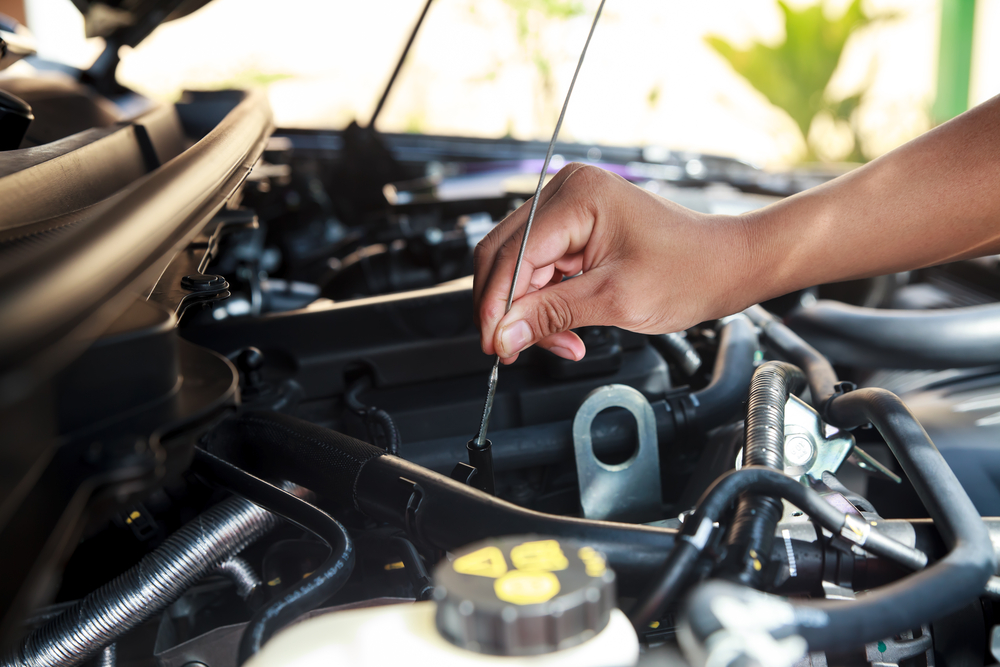All Categories
Featured
Your car's exhaust system plays a vital duty in both its efficiency and environmental effect. It is accountable for routing dangerous gases far from the engine, decreasing hazardous emissions, and improving overall gas efficiency. Gradually, nevertheless, direct exposure to extreme temperature levels, wetness, and roadway particles can take a toll on the exhaust system, causing rust, leaks, and various other damage. Fortunately, there are numerous steps you can require to prolong the life of your vehicle's exhaust system and stay clear of costly repairs. Right here's how:
![]()
![]()
Final thought. Taking care of your vehicle's exhaust system is necessary for ensuring its durability and preserving the general health and wellness of your lorry. By consistently examining the system, maintaining it clean, attending to issues promptly, and driving sensibly, you can help expand the life of your exhaust system.
- Frequently Examine the Exhaust System. Regular inspections of your car's exhaust system are important for catching possible issues prior to they become significant problems. Periodically examine for indications of damage such as rust, leakages, cracks, or holes. You can visually check the exhaust pipelines, muffler, and catalytic converter for any type of evident damages. This might show a problem with the exhaust system that requires attention if you listen to any type of uncommon noises like loud roaring or rattling while driving. Capturing these issues early permits repairs to be made prior to they create more damages.
- Keep the Exhaust System Clean. Over road, dirt and time particles can collect on the bottom of your auto, including the exhaust system. Utilize a pipe or a pressure washer to eliminate particles and crud from the exhaust pipes and other parts.
- Drive Properly and Prevent Brief Trips. How you drive can have a substantial effect on the life-span of your exhaust system. Frequent brief journeys, particularly those where the automobile does not reach its optimum operating temperature, can trigger dampness to build up inside the exhaust system. It can lead to corrosion development when dampness mixes with the exhaust gases. To stop this, attempt to prevent excessive short journeys and go for longer drives to make certain the exhaust system gets hot sufficient to vaporize any type of dampness. In addition, stay clear of rapid velocity or tough stopping, as these can create unneeded pressure on the exhaust elements.
- Address Exhaust Leakages Promptly. Exhaust leaks not only jeopardize the performance of your vehicle however can additionally result in engine issues and wellness risks because of the accumulation of carbon monoxide. If you discover any indications of exhaust leaks, such as uncommon smells, loud noises, or a drop in engine efficiency, obtain your exhaust system examined by a mechanic promptly. Fixing little leaks early can help stop more damages to the exhaust system and make sure that the engine is running successfully.
- Stay Clear Of Driving Through Deep Puddles or Water. Driving via deep puddles or swamped areas can expose your automobile's exhaust system to sudden temperature adjustments. When the exhaust system is hot and enters contact with cold water, it can trigger steel parts to contract, potentially bring about fractures or damage. Attempt to prevent driving with deep water or huge pools, specifically after rains, to protect your exhaust system from unneeded stress.

- Maintain the Engine and Fuel System. A well-maintained engine and fuel system have a direct impact on the exhaust system's long life. Routine oil modifications, trigger plug maintenance, and air filter substitutes make certain that the engine is running efficiently and effectively. An appropriately running engine reduces the possibility of unsafe exhaust gases accumulating, which can harm the exhaust system with time. In addition, ensure that the gas system is properly tuned and devoid of contaminants, as bad gas high quality can lead to the manufacturing of harmful by-products that can increase deterioration on the exhaust system.
- Check the Oxygen Sensors. The oxygen sensors in your car keep track of the levels of oxygen in the exhaust gases, aiding the engine control system readjust the air-fuel blend for optimum performance. Damaged oxygen sensing units can lead to inefficient engine efficiency, which can put extra pressure on the exhaust system and rise exhausts. Regularly inspect and change the oxygen sensing units as needed to ensure that your exhaust system is functioning effectively.

- Secure the Exhaust System from Roadway Salt and Chemicals. Throughout the winter season, roadway salt and chemicals used to thaw ice can be harsh to your vehicle's exhaust system. Make certain to clean your cars and truck frequently to remove any salt accumulation from the bottom if you live in an area where roadways are salted. This will help avoid rust and extend the life of the exhaust components.
Final thought. Taking care of your vehicle's exhaust system is necessary for ensuring its durability and preserving the general health and wellness of your lorry. By consistently examining the system, maintaining it clean, attending to issues promptly, and driving sensibly, you can help expand the life of your exhaust system.
Latest Posts
Explore Limited-Time Auto Repair Offers in Chicago at Montclare Auto Repair
Published May 27, 25
1 min read
Explore Auto Services & More: Complete Auto Care Solutions from Montclare Auto Repair
Published May 27, 25
1 min read
Specialist Residential Roof Solutions You Can Count On
Published May 25, 25
1 min read
More
Latest Posts
Explore Limited-Time Auto Repair Offers in Chicago at Montclare Auto Repair
Published May 27, 25
1 min read
Explore Auto Services & More: Complete Auto Care Solutions from Montclare Auto Repair
Published May 27, 25
1 min read
Specialist Residential Roof Solutions You Can Count On
Published May 25, 25
1 min read